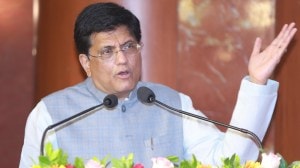Bailing out Pakistan
The US administration's effort to obtain Congressional waivers on sanctions legislation is spurred by mixed motives. The consequences for...

The US administration8217;s effort to obtain Congressional waivers on sanctions legislation is spurred by mixed motives. The consequences for India will depend on what kind of factors are in play. Criticism of sanctions as an effective foreign policy tool has been growing in the US and among its European allies for the last few years. Business does not like the restrictions.
President Clinton and Secretary of State Madeleine Albright have, in turn, complained about the lack of flexibility in conducting foreign policy. Even so, the number of sanctioned entities has grown to something like 90 with India and Pakistan being the latest additions.
There is little chance of a big-bang end to sanctions. They will unravel piece by piece. One notable recent retreat from sanctions on the Iranian gas pipeline deal took three years. As the freeing of exports of agricultural produce to Pakistan shows, domestic considerations in this case American wheat farmers tend to bring quicker results.
The Pakistani debt paymentdefault, which is said to be only days away, involves a large number of interests. At risk are loans from multilateral agencies worth 25 billion and 5 billion from international commercial banks. All of them are undoubtedly pressing for a bailout of Pakistan through a restructuring or rollover of its debt underwritten by the US as was done in the past in Latin America.
While that makes the immediate case for waivers of both Pakistan-specific legislation 8212; the Pressler amendment 8212; and the 1994 non-proliferation Glenn law which mandates sanctions on India and Pakistan, the State Department has its own goals. Under its latest formula of distributing the pain equally, India with its larger and sounder economy will not be a direct beneficiary of the easing of sanctions. Indeed, from the petty-minded denial of a visa to the chairman of the Atomic Energy Commission to Albright8217;s expectations about Indian initiatives, the signals are that pressure will continue to be maintained.
However, as the World Bankapproval of development loans for Andhra Pradesh shows, the intention is to make selective use of Washington8217;s sanctions powers, Congress willing. This creates a window of opportunity for India which can be seized with the right economic policies and the lobbying power of US business.
There is no justification for seeing a tilt towards Pakistan here. Its economy is on its knees. Judging by the inevitable opposition from establishment hawks to Nawaz Sharif8217;s moves towards signing the CTBT, the economy will have to be supine before hardliners are compelled to be sensible. There is no question that economic collapse will have grave social and political consequences. A breakdown of the present democratic order in Pakistan would create a very unpredictable political and military situation in the region. India has every reason to want such a scenario averted.
Efforts to restore economic stability should be welcomed because the repercussions of failure will be felt widely. True, pulling its chestnuts out of thefire could well make Islamabad more intransigent on a number of issues. That concern should be discussed with Washington.
- 01
- 02
- 03
- 04
- 05































